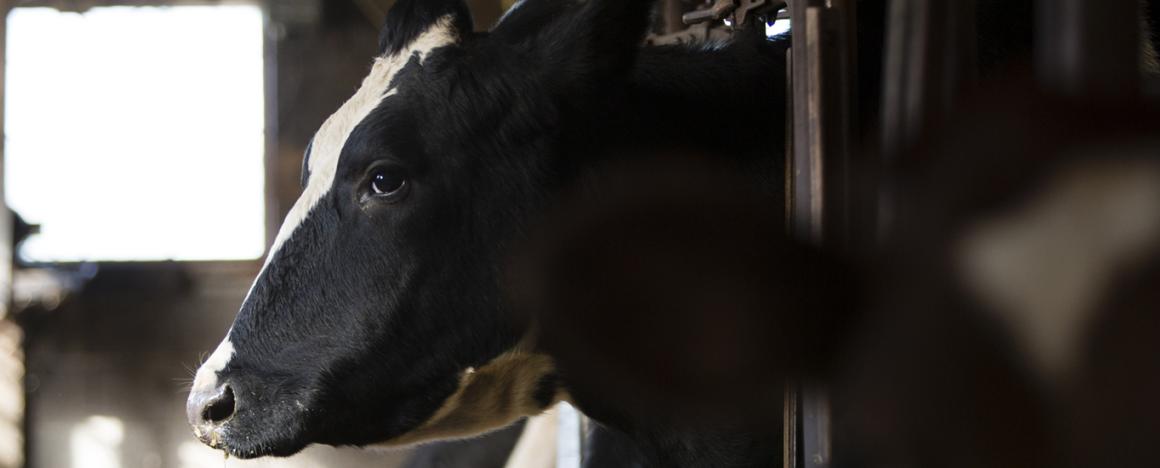Herd Health & Production Medicine

-
Tufts Veterinary Field Service offers evaluation and recommendation services for farms looking to improve dairy or beef herd performance. Areas for improvement may include milk production, reproduction, mastitis, lameness, milk quality, young stock growth or illness prevention. The veterinary consultation includes visiting the farm to analyze records, interviews of farm personnel and observation of the animals to determine the causes of poor performance. The veterinarian may then suggest appropriate interventions and continue to monitor performance to assess the herd’s progress toward reaching their goals. Herds may be visited weekly, bi-weekly or monthly as needed.
-
Tufts Veterinary Field Service offers herd evaluations for reproductive needs, including ultrasound evaluation for pregnancy diagnosis and to ensure normal reproductive cycling. Customized protocols can be created to assist farms in meeting their reproduction goals, such as creating timed artificial insemination protocols. In addition, herd performance will be compared to reproductive benchmarks and past herd performance and specific indices will be established to monitor herd performance going forward Our mission is to help you realize your goals as a producer.
Tufts Veterinary Field Service has several highly qualified veterinarians including veterinarians that are board certified in medicine, reproduction, and dairy management. In addition, the practice has a veterinarian certified by the American Embryo Transfer Society.
-
Approximately 28 days in gestation, Tufts Veterinary Field Service can perform an on-farm ultrasound to diagnose pregnancy in your cow. The veterinarian is also able to sex the calf as a bull or heifer if the pregnancy is between 60 and 75 days of gestation. This practice is commonly known as Fetal Sexing.
Fetal Sexing is a valuable tool to help owners make informed decisions about keeping or culling cattle based on the gender of the calf that she is carrying.
-
As farms have grown larger and more complex, standard operating procedures have become increasingly valuable as multiple farm employees may be performing a variety of tasks throughout the day. An SOP is a written, cohesive, step-by-step set of instructions, giving each employee a detailed description of how to handle a specific task within their job.
Protocols may be written for disease treatment, milking, calving, newborn calf handling, feeding, breeding and great number of other tasks that need to be performed on farms every day. Tufts Veterinary Field Service can work with farms to review existing protocols and develop new ones.
The benefits of a well-written SOP are:
- Optimization of cattle performance as cattle thrive with consistency
- Ease in job training and employee evaluation
- Improved data accuracy when protocols are developed to computerize farm data
- Reduced risk of drug residue violation in meat or milk
- Allows the producer to work more effectively with farm employees as everyone at the farm works together to achieve farm goals
- Compliance with animal husbandry audits and certification in dairy quality programs
-
Tufts Veterinary Field Service offers on-farm meetings and common-site trainings in Spanish and English on various topics including dystocia, mastitis management, and calf-raising. These educational seminars are scheduled as needed. Call the office at Tufts Veterinary Field Service for times and dates.